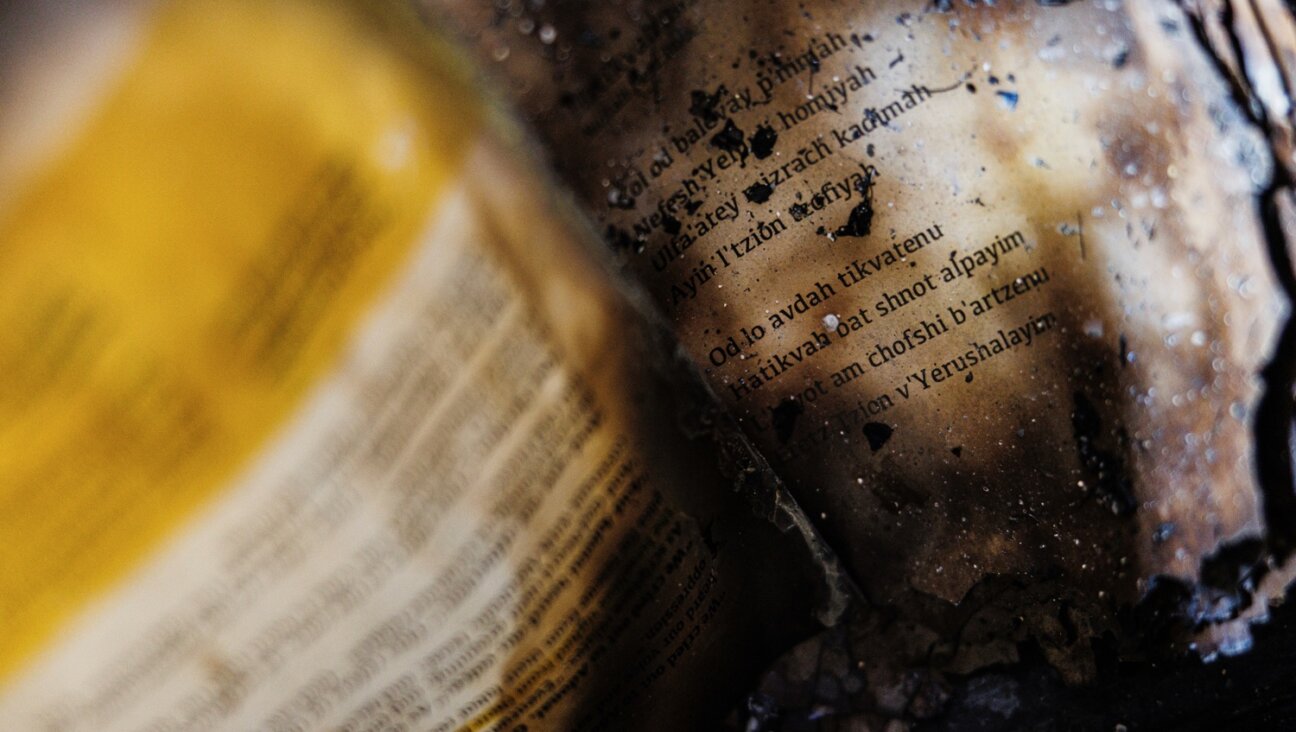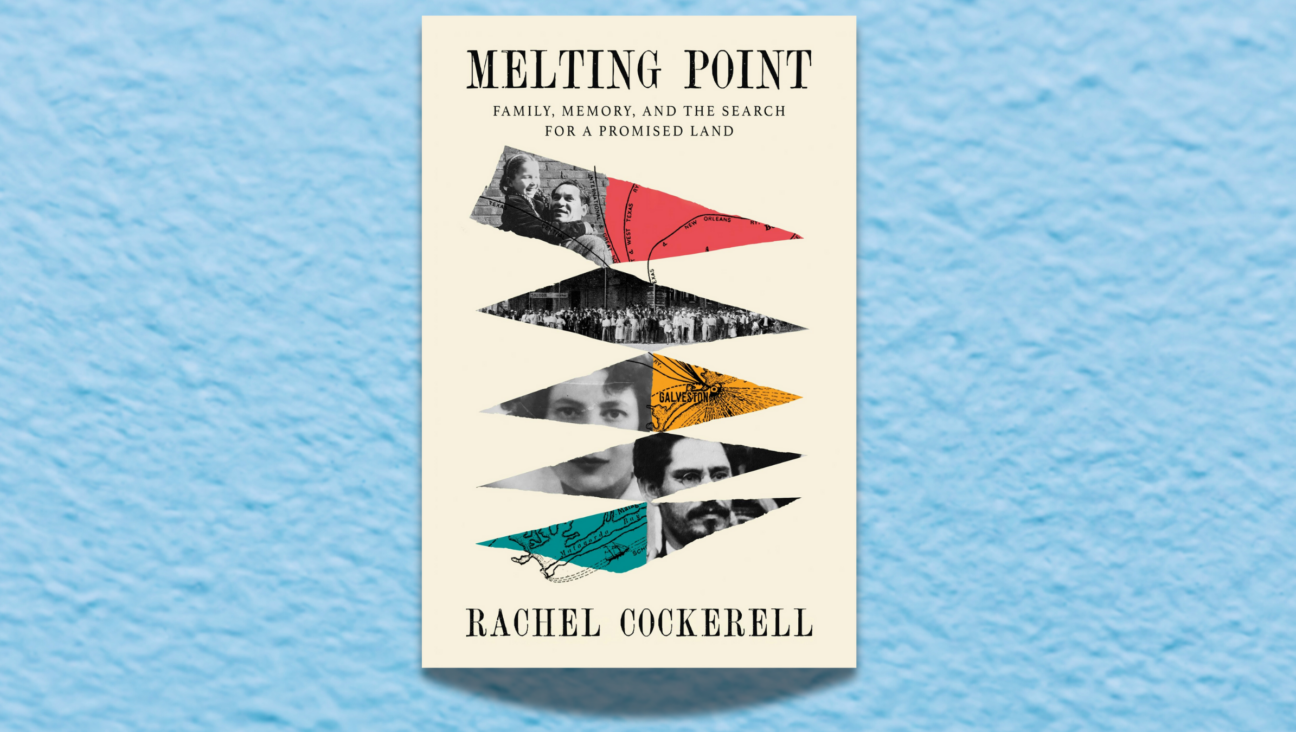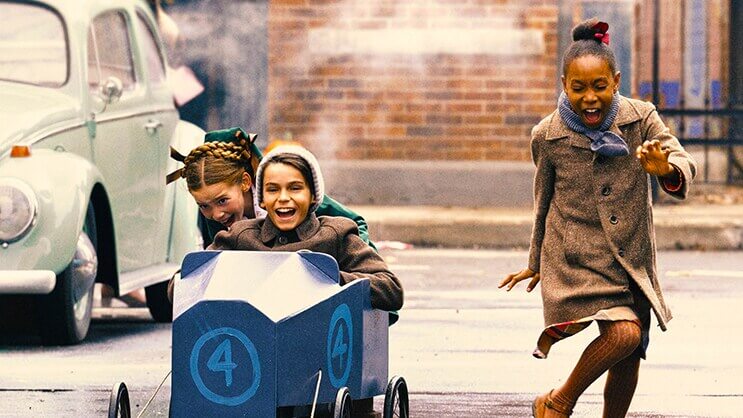Fussing on the Cliff

Language, Spelled With Seven Equals Signs: Charles Bernstein has an uncompromising vision of how words can, and should, be used. Image by JEMIMAH KUHFELD
All the Whiskey in Heaven: Selected Poems
By Charles Bernstein
Farrar, Straus and Giroux, 320 pages, $26

Language, Spelled With Seven Equals Signs: Charles Bernstein has an uncompromising vision of how words can, and should, be used. Image by JEMIMAH KUHFELD
A few years ago, following a John Zorn concert, I was standing outside, chatting with an acquaintance about the phenomenon of the Jewish avant-garde. Suddenly, a man of a certain age, with a strong Brooklyn accent, barged in: “Jewish avant-garde?” he said. “Excuse me, but that is simply excessive. Merely being Jewish already puts you far out there, at the frontier.” The prominence of Jewish artists who have been, and are still involved in, experimental artistic movements, from Dada and Surrealism to free jazz and concrete poetry, would seem to support such a notion. You don’t need a Brooklynite philosopher to tell you that. And you probably don’t need a poet-academic to tell you, either: The only thing these avant-garde Jewish artists had in common was specifically their ambiguous and at times outright antagonistic relationship to their Jewish roots.
And yet, Charles Bernstein, prominent poet and critic, and co-founder of the Language (or L=A=N=G=U=A=G=E) poetry movement, in an essay included in “Radical Poetics and Secular Jewish Culture” (published in November 2009 by the University of Alabama Press), still states: “I am no more Jewish than when I refuse imposed definitions of what Jewishness means. I am no more Jewish than when I attend to how such Jewishness lives itself out, plays tunes not played.” Truly, the idea of Jewish self-denial as the ultimate expression of Judaism is far from being new. But it’s not ancient or even very old, either: It’s somewhere in between — perhaps it is middle-aged, not unlike the poet himself. And, as it were, knee-deep in crisis. What is the nature of Bernstein’s crisis, and what are these “tunes not played”? Bernstein’s poem (musical enough to be a tune) “Rivulets of the Dead Jew,” from his recently published retrospective collection, “All the Whiskey in Heaven,” sings out:
Fill my plate with boudin noir
Boudin noir, boudin noir
Fill my plate with a hi-heh-ho
& rumble I will go
Don’t dance with me
’til I cut my tie
Cut my tie, cut my tie
Don’t fancy me ’til
The rivers run dry
& a heh & a hi & a ho
I’ve got a date with a
Bumble bee, bumble bee
I’ve got a date with a
wee bonnie wee
& ahurtling we will go
With all the repetitions and simplistic rhymes, the poem prances around, rumbling and hurtling itself, as it embodies emotional and semantic fluidity, avoidance of stasis at all costs. The bee’s flight is the key metaphor here: Unlike an airplane headed to a specific destination, the bee moves in uneven circles, compulsive, changing its mind, landing on pretty flowers it sees — as does this poem, which lands on a balladlike tone, a dancing rhythm, the image of a (very treyf) French blood sausage, and an Irish folk song motive “wee bonnie” (little pretty). The bee collects random sweet bits of reference, assimilating them into a single hybrid collage. We taste the honey and may be seduced into thinking that it is the poem’s essence. Yet it is the bee itself — its work, its elusive flight — that constitutes the poet’s vision of his Jewish identity.
Although, perhaps this isn’t what the poem is about at all. Susan Bee is Bernstein’s wife who the narrator thinks is “bonnie.” Bee and Bernstein are about to go on a date — it’s a strictly personal noir love serenade. Could it be both? And the image of the cut “tie,” is it referring to a slapstick slashing of the cravat, or circumcision, or castration anxiety? Or is this keriyah, tearing of the clothing, Jewish mourning ritual? The severing of “ties” looms large in the image, as well. And what a word choice for the last line: “ahurtling.” There’s room for echoes of “hurting” and “hurdle” in there, as well.
This certainly could be a poem about assimilation. A beautiful, pollinated with languages and rhythms, mighty assimilation — scary in its risks. Take one step further, and you’re off the cliff, with no point of Jewish reference whatsoever. Is he going for that, or just playing with us? And why hasn’t he already taken that step? What’s holding him back? Bernstein might answer with a question: Why break your neck over there in the abyss if you can break it right here, on this very page, if you have enough imagination?
Of course, the difficulty of “identity” and “meaning” is a classic postmodern trope. Contemporary experimental writers have questioned our assumptions about the neat pegs of religious, ethnic and sexual self-definitions. They illuminated the impossibility of a fixedness of such notions, advocated the multitude of “rivulets” over select few “rivers.” Indeed, Bernstein, along with other Language poets, seeks to replace definitions with multilayered ambiguities. If anything, avoidance or subversion of expectations is the most consistent ingredient of his work, whether the poems are shaped into surreal jagged half-thoughts or self-mocking rhymes, are about world politics or the intestinal tract. In other words, he’s no less deconstructive toward Jewishness than the very notion of poetry itself:
This line is stripped of emotion.
The line is no more than an
illustration of a European
theory. This line is bereft
of a subject. This line
has no reference apart
from its context in
this line. This line
is only about itself.
This line has no meaning:
its words are imaginary, its
sounds inaudible. This line
cares not for itself or for
anyone else — it is indifferent,
impersonal, cold, uninviting.
This line is elitist, requiring,
to understand it, years of study
in stultifying libraries, poring
over esoteric treatises on
impossible to pronounce topics.
This line refuses reality.
Like Rene Magritte’s painting “This Is Not a Pipe,” in whose footsteps this poem follows, “This Line,” has a certain deadpan humor to lighten up an otherwise heavy nihilism. Language is convention, this poem says, and the ways in which we assign meaning are arbitrary, obvious and fake. Yet, notice how the lines are breaking midthought, sabotaged by enjambment, and how they stretch out beyond their span, as if escaping the author’s very attempt to pin them into specific definitions. For example, “This line is only about itself” is languorously spread over two lines, and “This line cares not for itself or for anyone else” selfishly hoards four. Through wily, self-referential play, the poem attempts to publically reveal conventions and anti-conventions of poetry, inviting the reader into its iconoclastic game.
It’s hard not to play the chicken-and-egg game: Did the conflicted Jewishness inspire an aesthetic of ambiguity, or was there an original aesthetic that shaped Bernstein’s relationship to Judaism? And why did the chicken cut across the conventions and codes of Western literature? Does it think of itself as a bird, or a bee, perhaps? Some poems may state otherwise, but in “The Lives of the Toll Takers,” the chicken is given its due:
The hidden language of the Jews: self-reproach, laden with
ambivalence, not this or this either, seeing five sides to
every issue, the old pilpul song and dance, obfuscation
clowning as ingratiation…
Aside from three or four poems, “All the Whiskey in Heaven” has little to offer as far as explicitly Jewish content goes. But then, what do you make of that familiar strain in Bernstein’s humor? The way he makes himself the butt of the jokes? The overeducated, obsessive and fussy tone? In the essay “Radical Jewish Culture / Secular Jewish Practice,” Bernstein proposes: “the… focus on Jewish content as the sine qua non of Jewish literature has distracted from recognition — not so much of Jewish forms, whatever they might be, as from formal, rhythmic, dialectical and dialogical and colloquial dimensions of literary, musical, and visual works that do not have explicitly Jewish thematic focus.” Depending on one’s predilections, this could sound evasive or on the cutting edge of contemporary ambiguities, but regardless, it is avant-garde — out on the frontier, challenging our very definition of art, walking the fence between nonsense and genius. And in this lies the nature of Bernstein’s crisis: So much weight is shifted to the reader, so much depends on the reader’s own notions of poetry and identity to create or deny the work’s coherence — its very existence — which is literally, and literarily, threatened at every moment, a predicament the lines below seem to bemoan so eloquently:
Seduced by its own critique, the heady operative with twin
peaks and a nose for a brain, remodeled the envelope she
was pushing only to find there was nobody home and no
time when they were expected.
Jake Marmer writes about Jewish poetry for the Forward.
The Forward is free to read, but it isn’t free to produce

I hope you appreciated this article. Before you go, I’d like to ask you to please support the Forward.
Now more than ever, American Jews need independent news they can trust, with reporting driven by truth, not ideology. We serve you, not any ideological agenda.
At a time when other newsrooms are closing or cutting back, the Forward has removed its paywall and invested additional resources to report on the ground from Israel and around the U.S. on the impact of the war, rising antisemitism and polarized discourse.
This is a great time to support independent Jewish journalism you rely on. Make a Passover gift today!
— Rachel Fishman Feddersen, Publisher and CEO
Most Popular
- 1

News Student protesters being deported are not ‘martyrs and heroes,’ says former antisemitism envoy
- 2

News Who is Alan Garber, the Jewish Harvard president who stood up to Trump over antisemitism?
- 3

Fast Forward Suspected arsonist intended to beat Gov. Josh Shapiro with a sledgehammer, investigators say
- 4

Opinion My Jewish moms group ousted me because I work for J Street. Is this what communal life has come to?
In Case You Missed It
-

Opinion Yes, the attack on Gov. Shapiro was antisemitic. Here’s what the left should learn from it
-

News ‘Whose seat is now empty’: Remembering Hersh Goldberg-Polin at his family’s Passover retreat
-

Fast Forward Chicago man charged with hate crime for attack of two Jewish DePaul students
-

Fast Forward In the ashes of the governor’s mansion, clues to a mystery about Josh Shapiro’s Passover Seder
-
Shop the Forward Store
100% of profits support our journalism
Republish This Story
Please read before republishing
We’re happy to make this story available to republish for free, unless it originated with JTA, Haaretz or another publication (as indicated on the article) and as long as you follow our guidelines.
You must comply with the following:
- Credit the Forward
- Retain our pixel
- Preserve our canonical link in Google search
- Add a noindex tag in Google search
See our full guidelines for more information, and this guide for detail about canonical URLs.
To republish, copy the HTML by clicking on the yellow button to the right; it includes our tracking pixel, all paragraph styles and hyperlinks, the author byline and credit to the Forward. It does not include images; to avoid copyright violations, you must add them manually, following our guidelines. Please email us at [email protected], subject line “republish,” with any questions or to let us know what stories you’re picking up.













